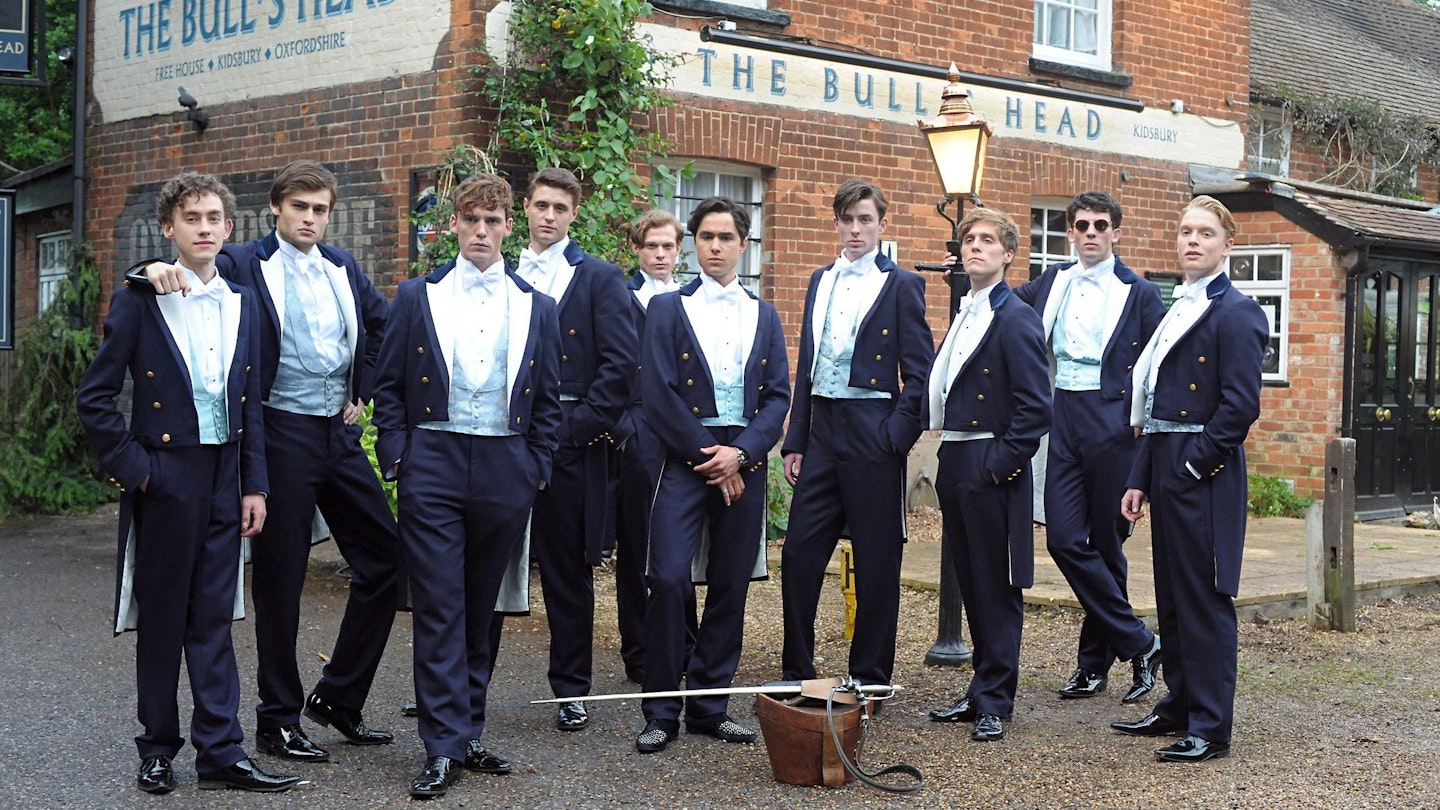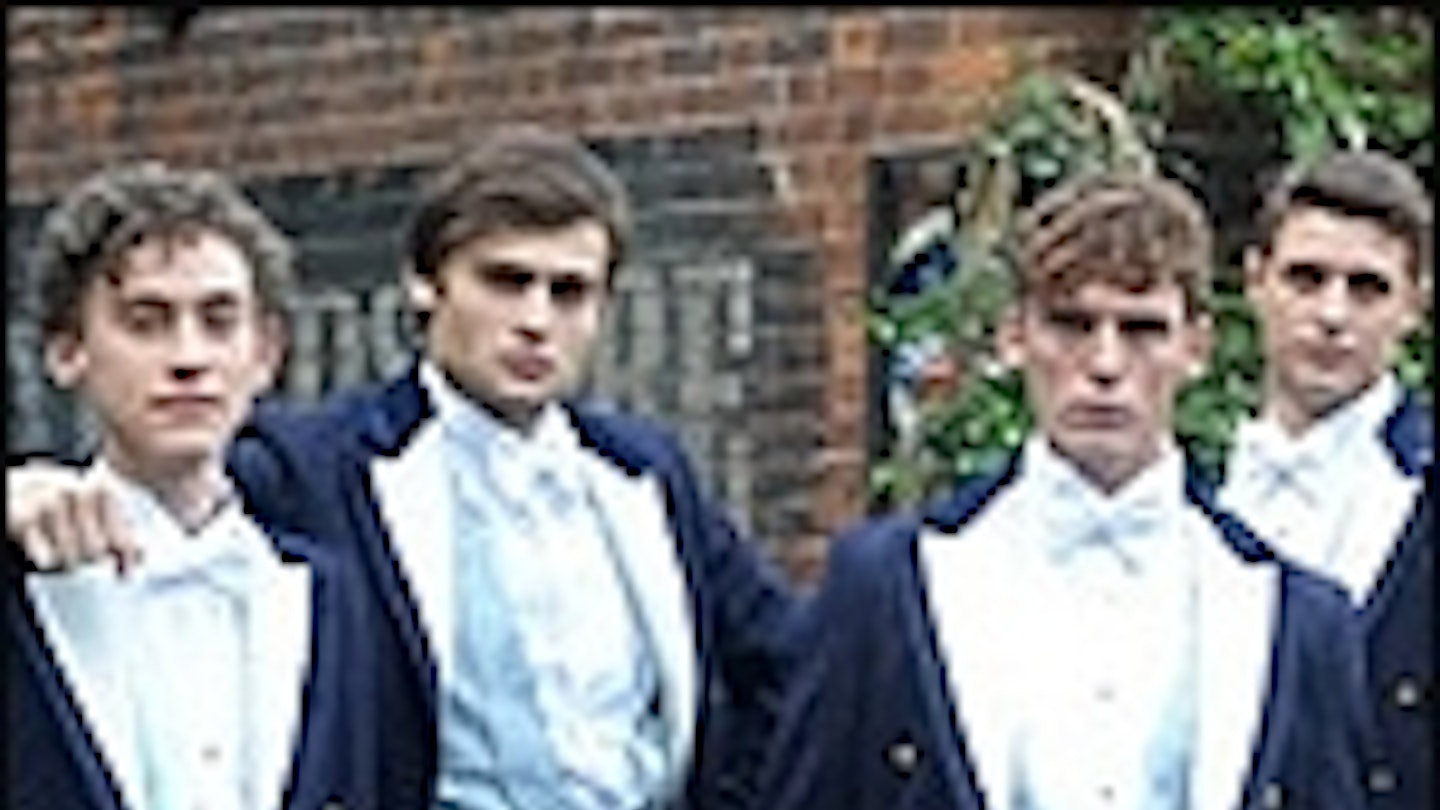From An Education To One Day (at least the first half), director Lone Scherfig has shown a feel for the big aspirations and small delusions of the college-age teenager. Here, she looks up the social ladder for The Riot Club, adapted from Laura Wade’s 2010 play Posh, a thinly veiled dramatisation of The Bullingdon Club, a secret society and traditional breeding ground for the upper echelons of the Tory party. The film plays to all of Scherfig’s strengths — good casting, a keen eye for telling detail, astute music choices — but for all this, it doesn’t completely coalesce into greatness.
Rather than political satire, the first act follows the contours of a traditional teen movie. Scherfig and Wade, adapting her own play, detail the cliques (the Poshos, the normal kids), the argot (“Let’s carpe some fucking diem”), the awkwardness (“What school did you go to?” is a recurrent chat-up line) and frat-boy antics (initiation rituals involving wine, spit, piss, fag-ends and maggots) common to the Hollywood yoof movie, but here shot through the prism of the British class system.
After charmer Miles (Max Irons) — whose burgeoning relationship with likable “commoner” Lauren (Holliday Granger) is the film’s sweet spot — and younger-brother-of-a-superstar student Alistair (Sam Claflin) pass the rites of passage to join The Riot Club, the film moves to its central set-piece, a mid-term dinner in a gastropub that escalates into a night of bacchanalia. Scherfig gets dramatic mileage from juxtaposing the events of the evening — Latin drinking games, an escort, humiliation for a key character — with the warmth of family meals and normality of kitchen life, but this section fails to transcend its theatrical origins. Slow motion and champagne-spraying montages can’t stop it feeling stagy, inert. Still, when the flash point inevitably comes, it is horrific.
Save Tom Hollander as a Riot Club alumnus-turned-conservative MP and Alistair’s anti-New Labour rant (“I’m sick to death of poor people”), Scherfig’s film has little to do with party political point scoring. Instead it is fascinated with broader themes of ritual, elitism, male posturing and Britishness. Yet while it inhabits its subject matter, The Riot Club doesn’t really do enough to illuminate it.



